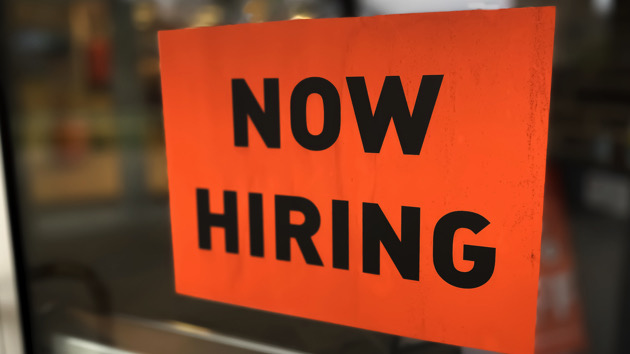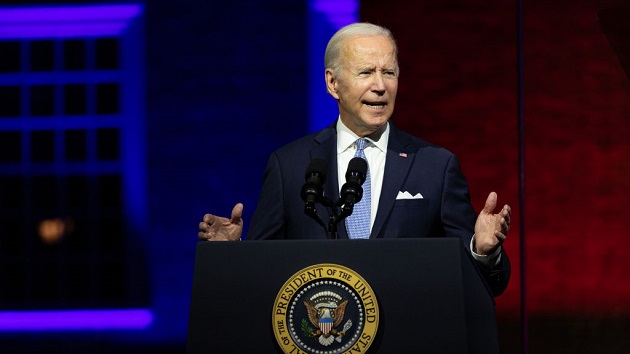
(JACKSON, Miss.) — When the water stopped running at her restaurant in Jackson, Mississippi, on Monday afternoon, Tanya Burns was preparing for a private event set to begin about one hour later. Suddenly, her dishwasher didn’t work and her toilets couldn’t flush.
“How do you host something for people and you can’t flush toilets?” Burns, the manager of BRAVO! Italian Restaurant and Bar, told ABC News. She canceled the event.
“We have not been open since,” she said.
The restaurant is one of many businesses in Jackson that have suffered as the city reaches nearly a full work week of little or no water, according to interviews with local business leaders.
The financial challenges stretch back even further, they said, since the city has fallen under a boil-water notice for more than a month that puts the onus on companies to sanitize water or find alternatives, while at the same time customers dial back shopping for fear of the services a business might lack.
In an interview on ABC News Live Tuesday, Chokwe Antar Lumumba, the mayor of Jackson, said the current crisis stems from up to 30 years of deferred maintenance and a lack of capital improvements to the system.
“We’ve had hotter summers, colder winters and more precipitation each year and it’s taking a toll on our infrastructure,” he said.
The crisis in recent days has only intensified the difficulties, as businesses either take on heightened costs for fixes like portable toilets and on-site water tanks that allow them to stay open, or temporarily close their doors altogether.
Jackson, a city of roughly 150,000 people, has an economy with a gross domestic product of over $28 billion, according to the Bureau of Economic Analysis.
Jeff Rent, the president and CEO of the Greater Jackson Chamber Partnership, which boasts roughly 1,400 member companies, said about 75 businesses have contacted him this week with concern about the impact of the water shortage. “It’s very dire,” he said of the crisis.
The effects of the shortage likely extend to just about every business in Jackson, he added, since many staff who live in the city cannot shower, companies that need clean water often must buy it and in-person workplaces need functioning toilets for customers and employees.
“If you do business in Jackson, this has affected you,” he said.
On the other hand, Gotta Go Site Service Rentals, which rents mobile facilities like portable toilets and hand-washing stations, has seen demand surge, the owner, Lauren McGraw, told ABC News.
“We’ve been swamped,” she said, adding that the company has been contacted by hundreds of new clients since Monday. “We’re getting so many calls we can’t handle them.”
The company, which employs 18 people and currently rents facilities to the state capitol building, purchased several hundred additional toilets from a supplier in Georgia to help meet the spike in demand, McGraw said. All of the employees are working overtime, as well as McGraw, she added.
The company has also raised prices. While prices vary widely, they’ve climbed about 50% overall, in part to account for a rise in costs as the company weathers the additional work, McGraw said.
Despite her company’s sudden growth in business, McGraw laments the devastating reason behind it.
“It’s not fun because we want to give great service,” she said. “It’s tragic to turn people down that you know need equipment and you can’t get it to them.”
Steven O’Neill, the co-owner of two Jackson-area restaurants, The Manship and Aplos, found himself in need of quick solutions when the water stopped running at his locations on Monday afternoon with customers in the middle of their meals. The restaurants informed their customers of the water shortage, let them finish their meals, and closed for the day, he said.
The two restaurants reopened the following morning and have remained in operation ever since. To do so, the company bought portable toilets and hand-washing stations, plastic plates and cutlery for customer use and water tanks that funnel clean water into the restaurants, O’Neill said.
But traffic at the restaurants has dried up, leaving the business with increased costs and a drop-off in revenue. Sales at Aplos is down 30% this week; and at The Manship, it’s down 50%. The company is barely breaking even, he said.
O’Neill has kept on all of his staff, but he may need to “make hard decisions” soon, he said.
“It’s a horrible situation to be in,” he said.
When asked whether he might take the restaurants out of Jackson altogether, he said, “It’s hard. I haven’t made that decision yet.”
Copyright © 2022, ABC Audio. All rights reserved.









